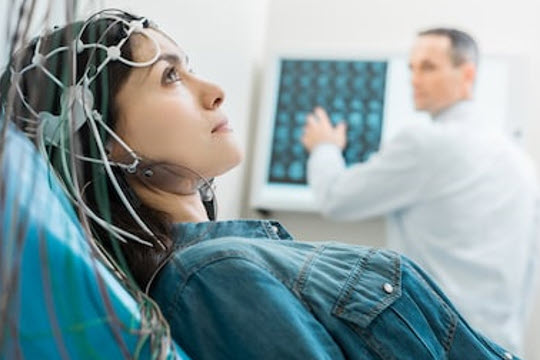An Injured Neck Can Cause A Sick Nervous System
Automatic or Autonomic Nervous System
Injuries to the neck can cause a whole lot of symptoms far greater than just neck pain. The neck is one of the most injury prone areas of the body. The head which weighs about 10 pounds and is delicately balanced on 7 small cervical vertebrae or spinal bones with 32 joints. Imagine trying to balance a bowling ball on a very flexable stick, not an easy task.
A recent study of from the Japan Neurological Institute and Matsui Hospital
along with the Tokyo Neuro-Center discovered a new disease group caused by abnomalities in neck muscles and named it Cervical Neuro-Muscular Syndrome. This is a fancy way of saying that neck muscles injured from whiplash or other mechanisms can cause the nervous system to malfunction.
The autonomic or automatic nervous system which should be balanced between the sympathetic and parasympatheic becomes revved up into high gear and cause constant neck muscle spasms . Further research has found that abnormalities in the neck muscles can cause many more symptoms than pain in the muscles. Frequently associated with the Cervical Neuro-Muscular Syndrome are headaches, chronic fatigue syndrome, vertigo and dizziness.
When it comes to headaches the pain can be found in different parts of the head. When the pain is in the back of the head near the neck this is called occipitalgia. Another common type of headache is when the pain goes behind or above the eye. This is described as a frontal type headache.
Chiropractic is very successful in helping these type of headaches. Many times a small bone in the neck fails to move properly causing the nerves to be irritated along with muscle spasms. The headache is referred from the neck similarly to pain in the arm or stomach referred from the heart. Rather than just treating the symptoms of pain with medication, treating the injury and spasms with manual methods and exercise, the cause of the problem is removed.
A group of patients were treated within a 2-year period from April 1, 2002 to March 31, 2004 and reported good outcomes in 83.8% for headache, 88.4% for vertigo and dizziness, 84.5% for chronic fatigue syndrome, 88.0% for automatic nervous system muscle spasm, and 83.7% for whiplash-associated disorder ( neck pain and injuries from a car accident). A large number of outpatients present with general malaise, including many general physical complaints without identifiable cause. The researchers concluded that treatment of the cervical/ neck muscles can be very effective for general malaise/tiredness amongst other symptoms.

